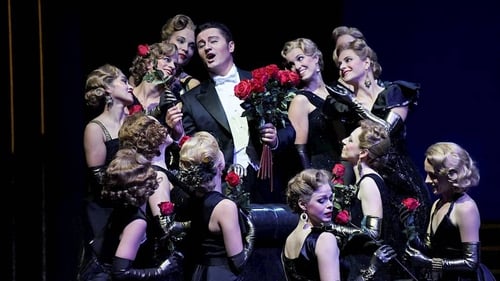
Feri
Emmerich Kálmán’s Csárdásfürstin (The Gypsy Princess) was once one of the most popular works in the operetta repertoire, but has appeared only sporadically on the operatic stage in recent decades. The plot tells the story of a love triangle involving Sylva Varescu, a spirited variété artist of humble origin, and the aristocrat Edwin, who is already promised to another woman. The obstacle to their love is their difference in social status.

Obereunuch

Prince/Manservant
Since its premiere on 2 June 1937 in Zurich, Alban Berg's second opera "Lulu" has the reputation of being surrounded by scandals. On the one hand, this is due to the dubious character of the subject, the man-eating femme fatale, which Berg had taken from Frank Wedekind's two Lulu tragedies – "The Earth Spirit" and "Pandora's Box" – and combined into one opera libretto. On the other hand, Berg's window had (for personal reasons) repeatedly refused to have the opera completed, which was unfinished when Berg died. This video is of the unfinished two-act torso of "Lulu."

Operetta in three acts / Sung in German Five years after Wagner's "Parsifal," Johann Strauss II presented "Simplicius" in the Theater an der Wien. Neither an opera nor an operetta, it was a work that did not fit into any of the pre-defined categories. On the 100th anniversary of the composer's death in 1999, the Zurich opera house presented a new production, the work's Swiss premiere. This production picked up on various impulses from the history of the works origin, using them to create a unique version of the piece. Here, for example, is the "Donauweibchen" incorporated shortly before the end. The Austrian-born chief conductor of the Zurich opera house, Franz Welser-Möst, has left his mark as a native speaker on this "Simplicius" production both here and elsewhere.


